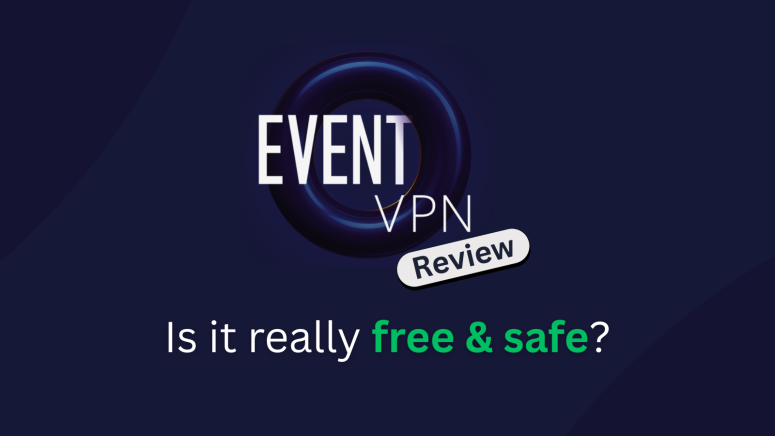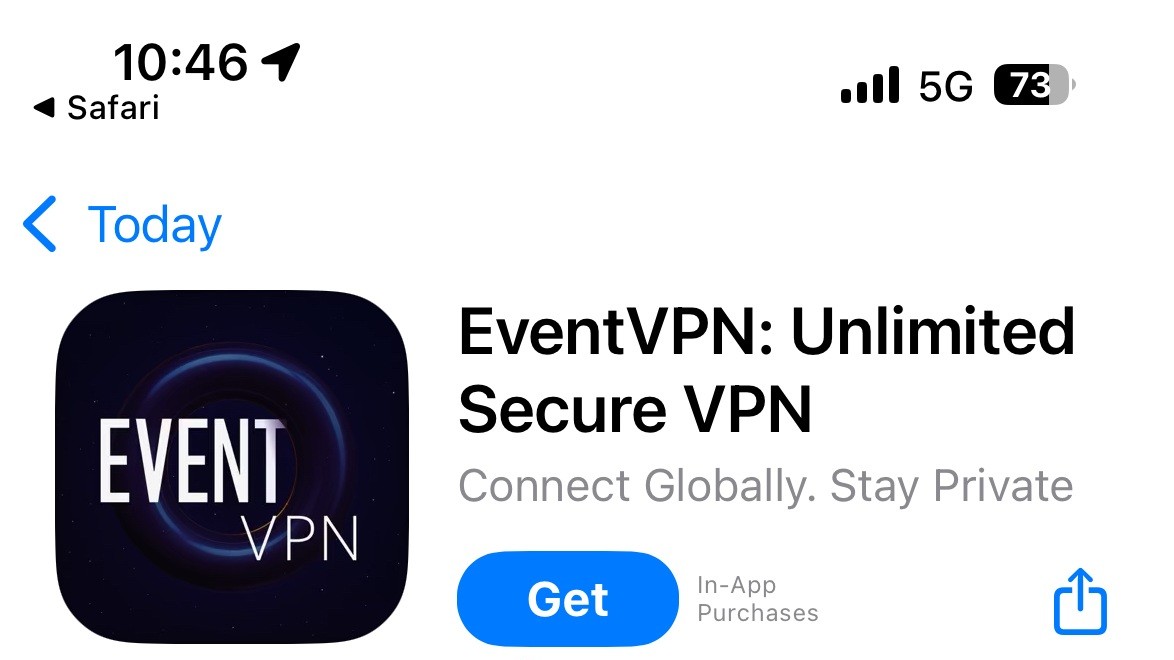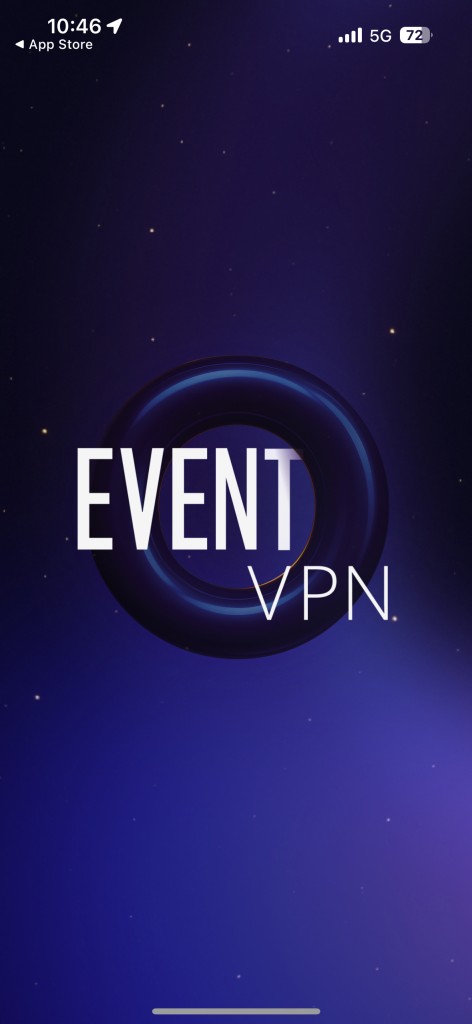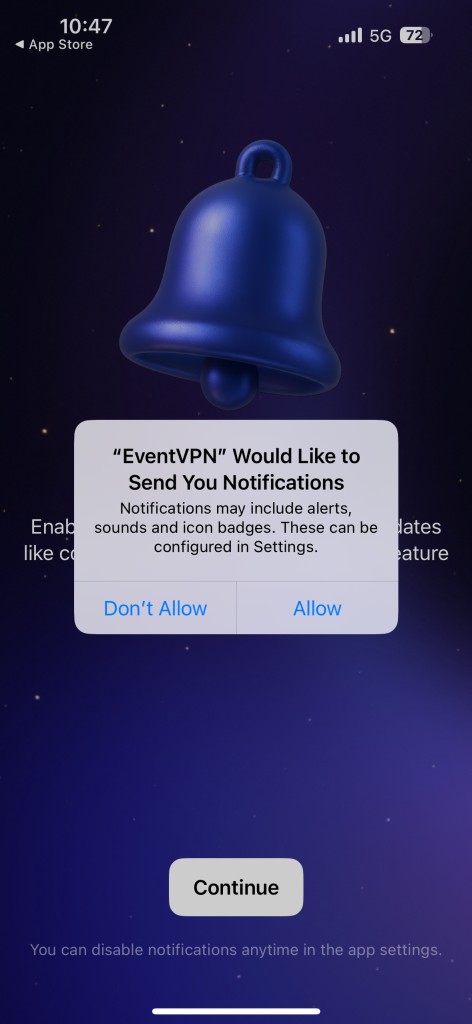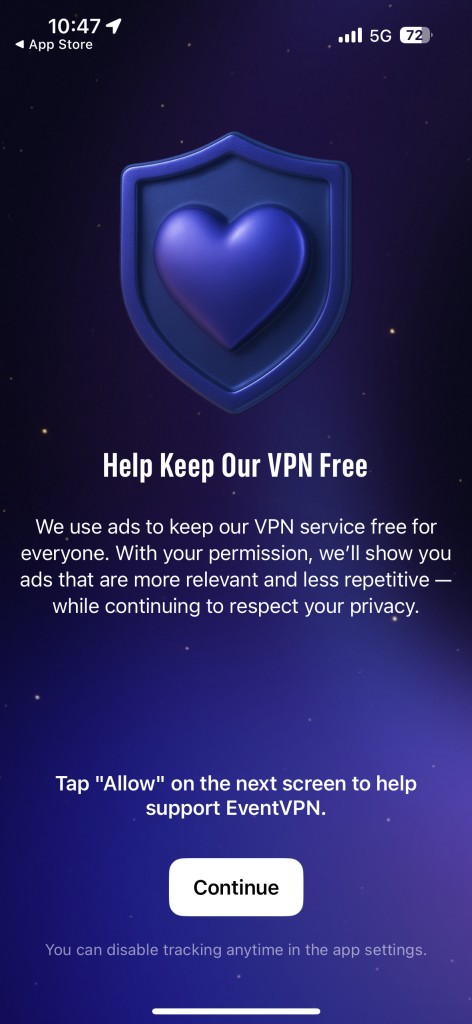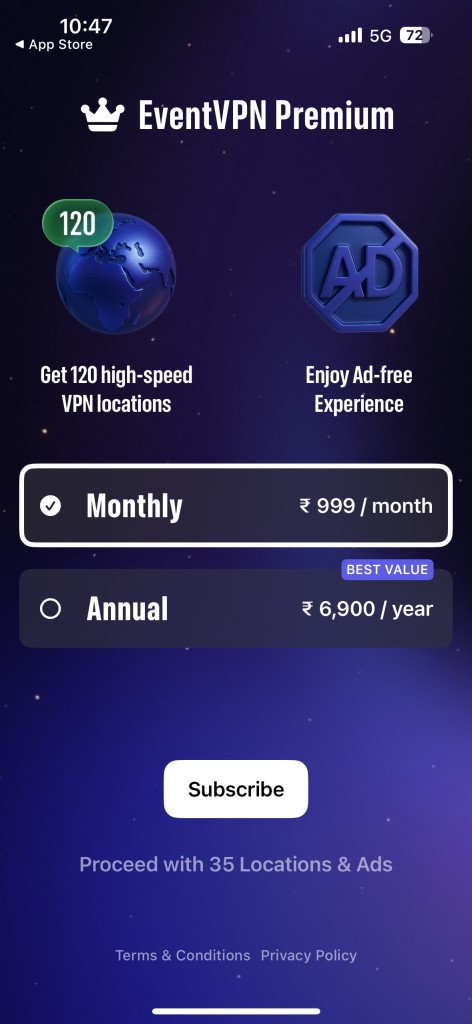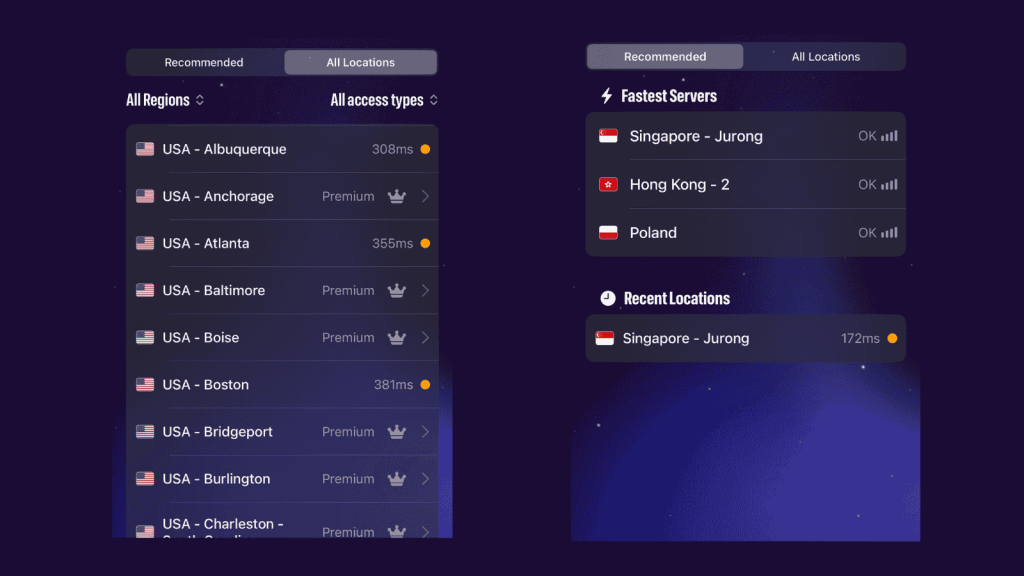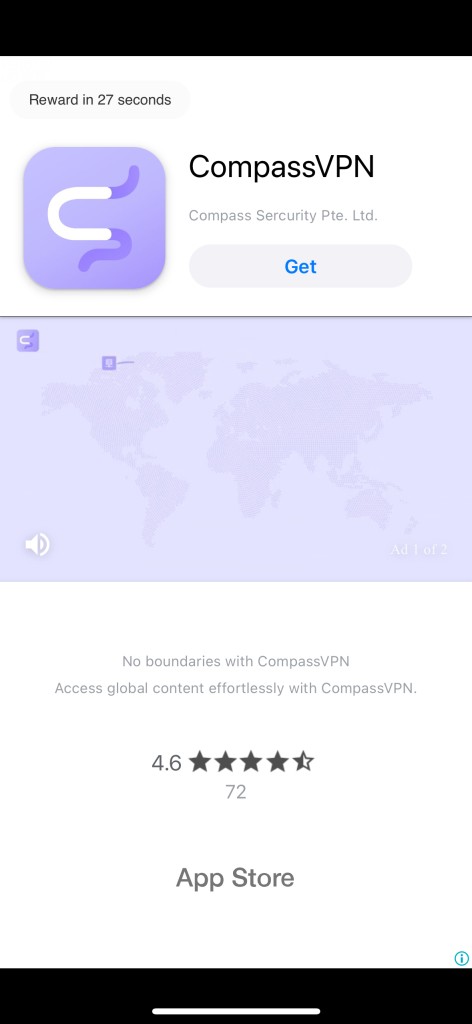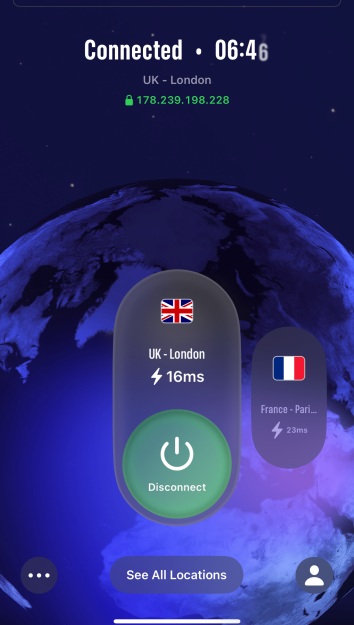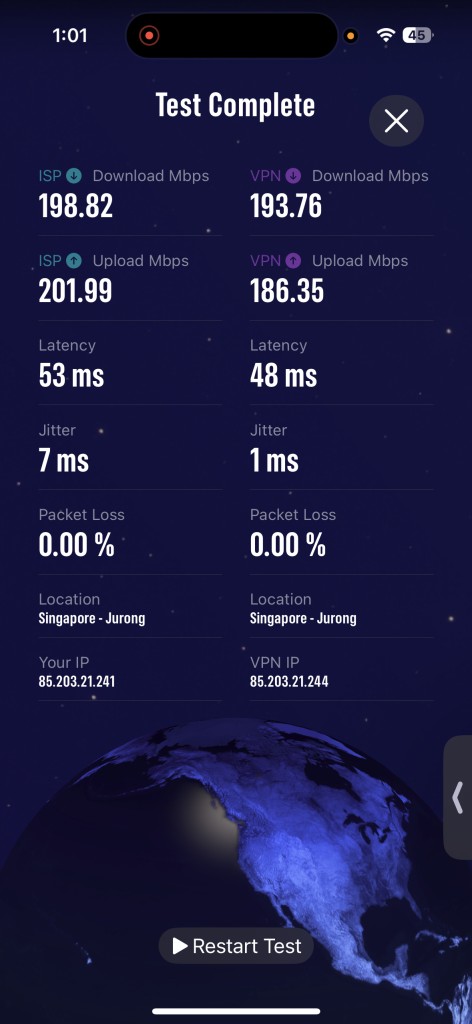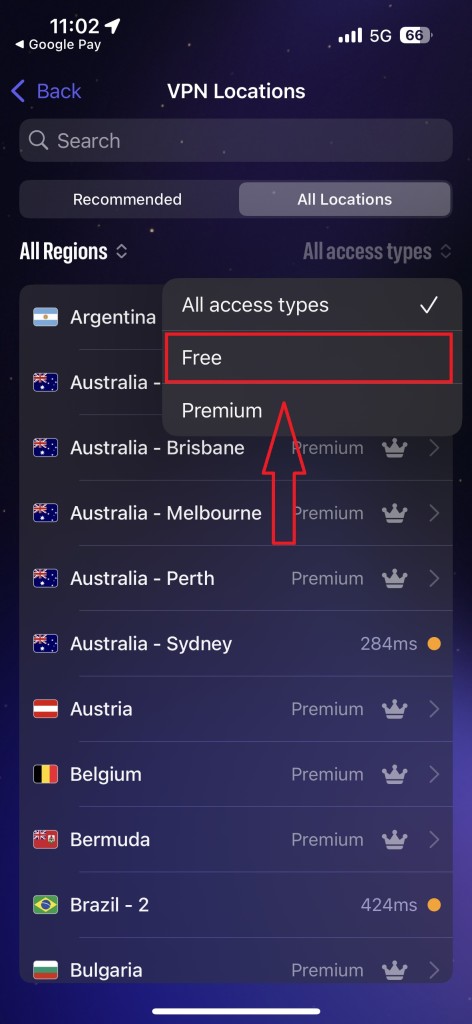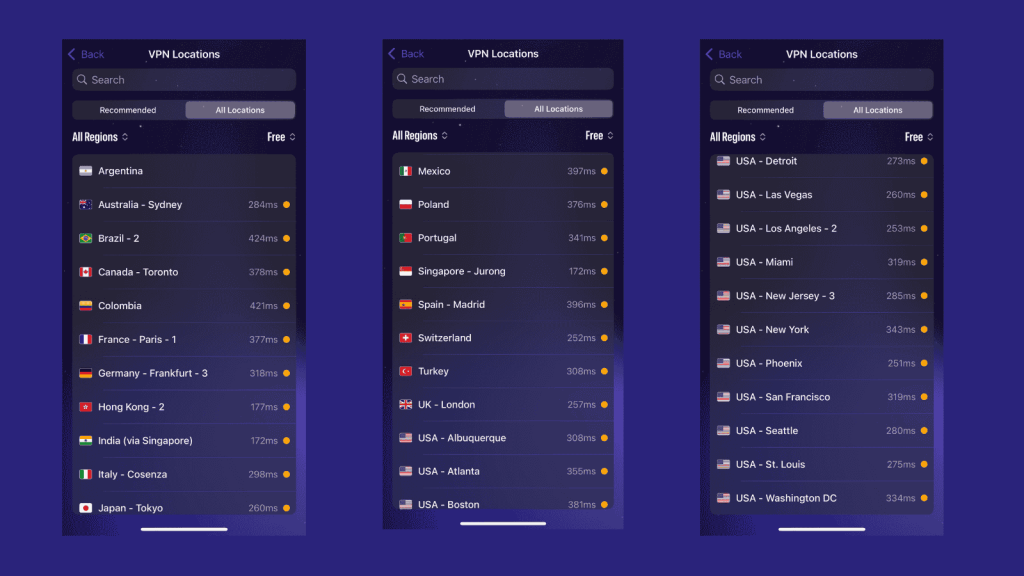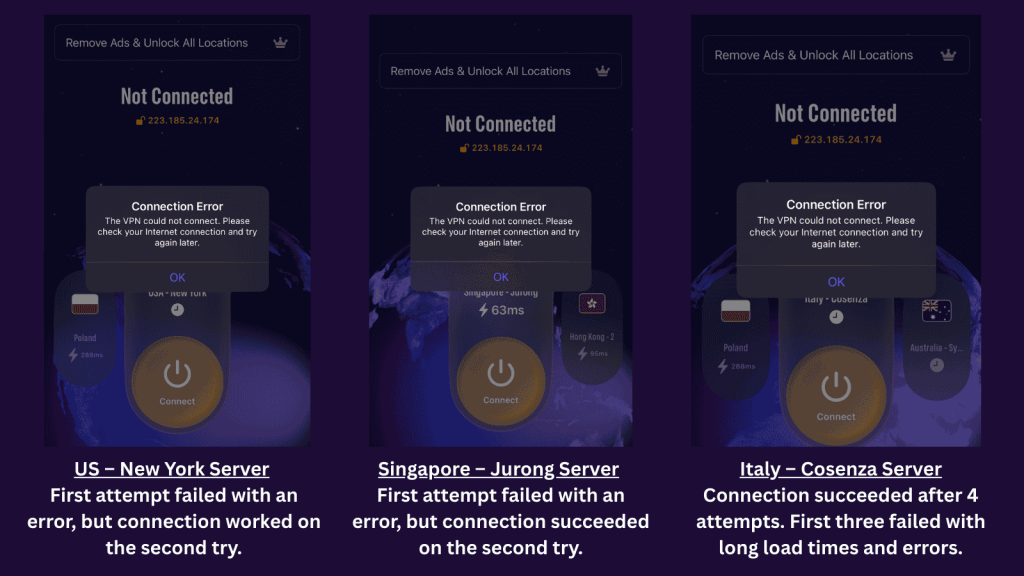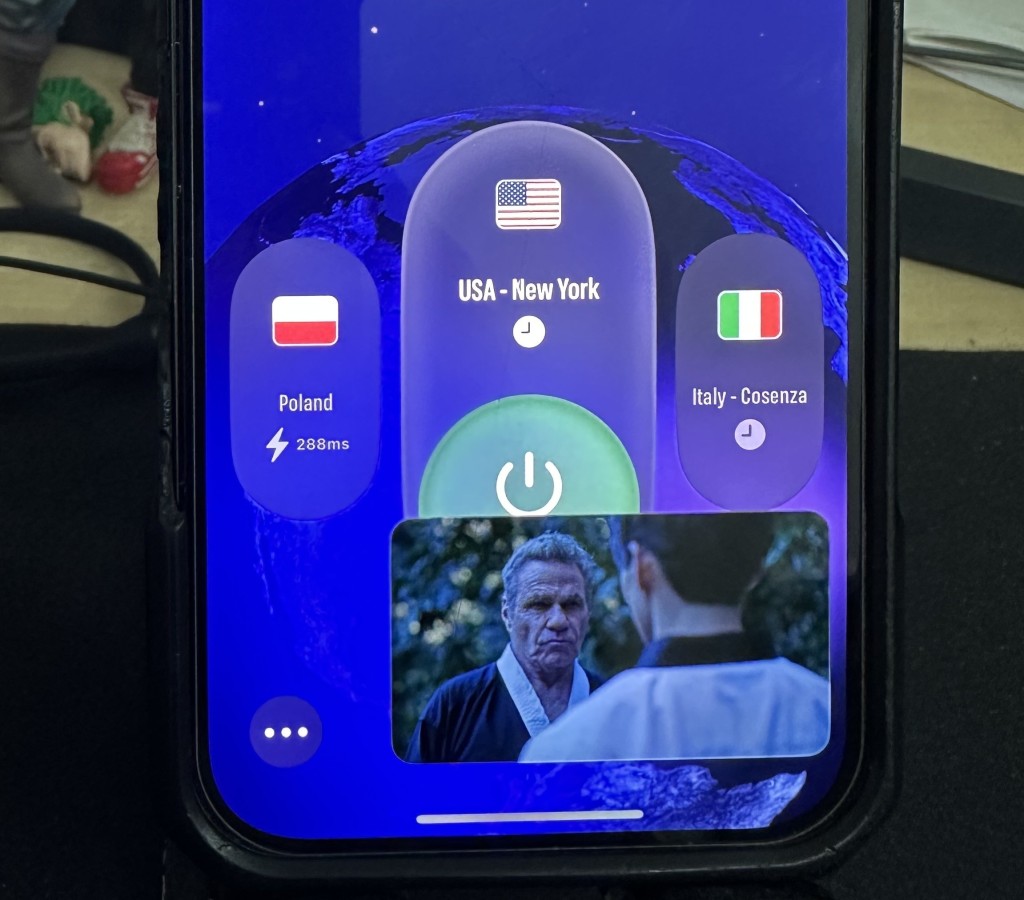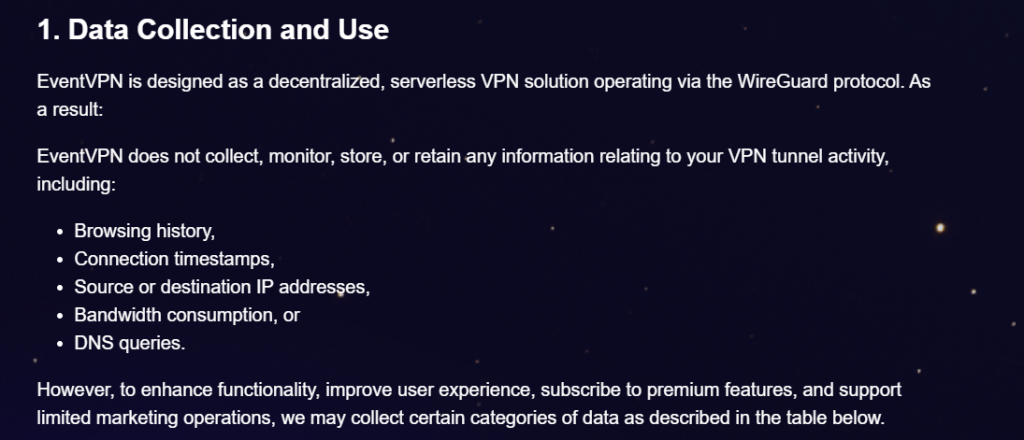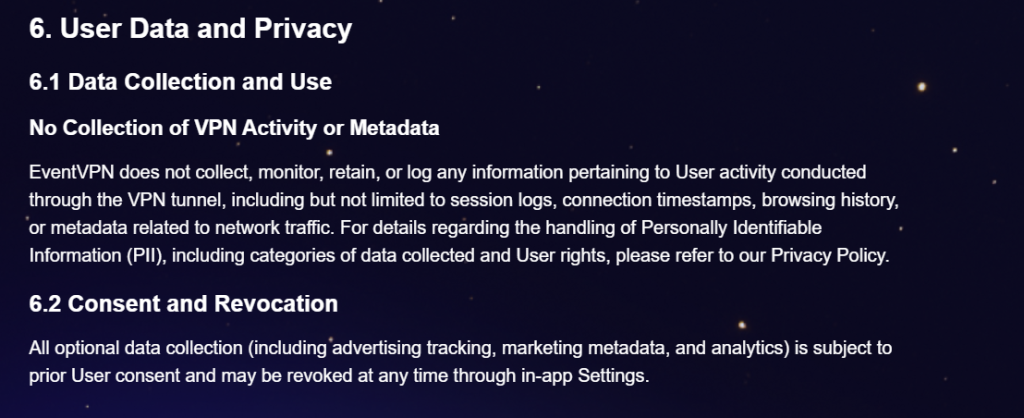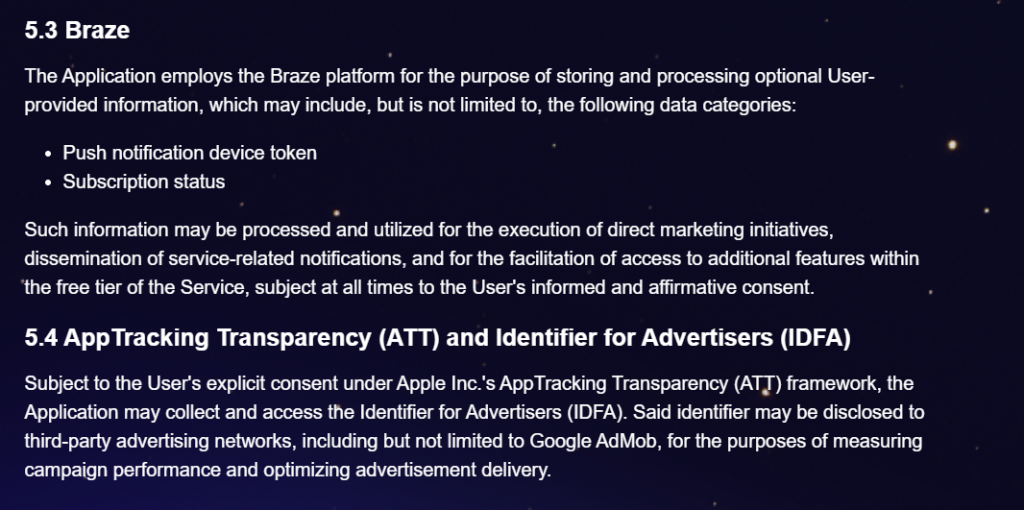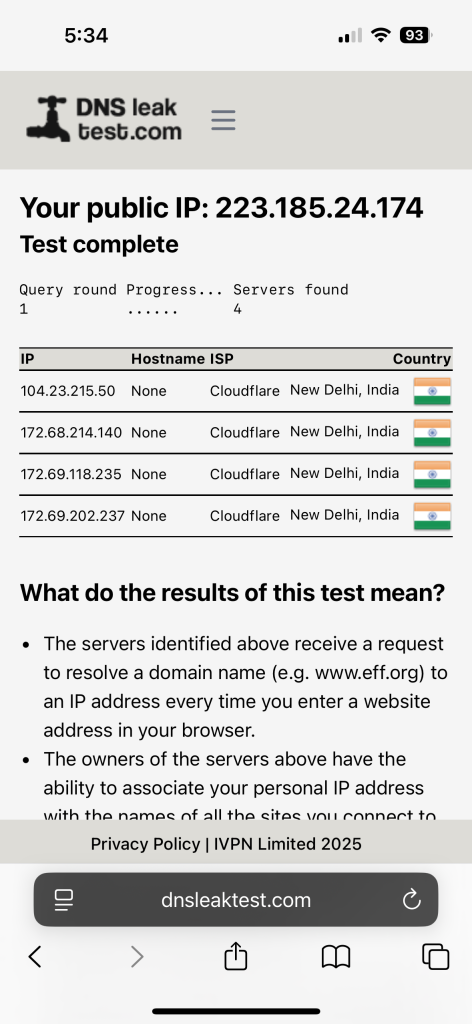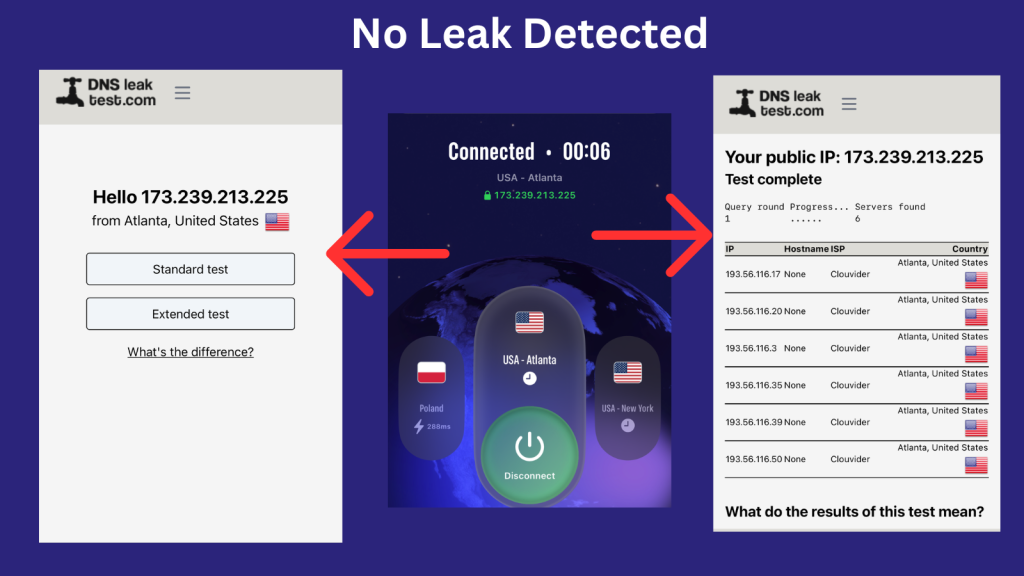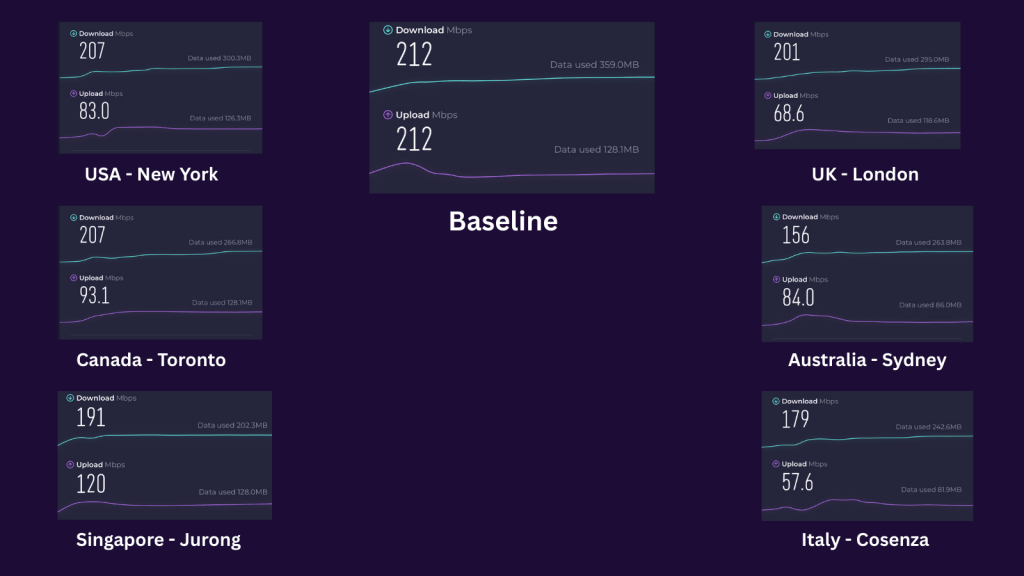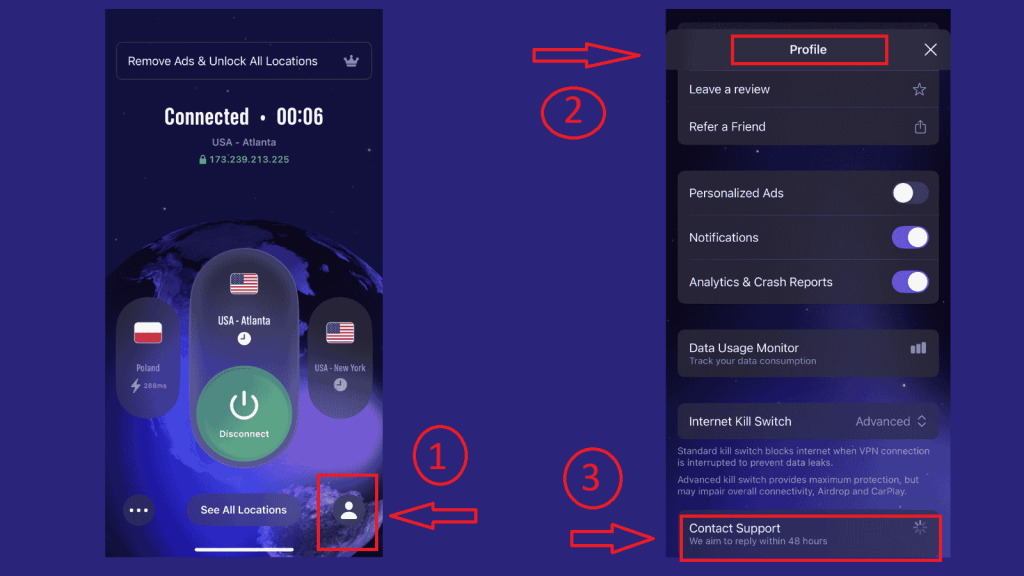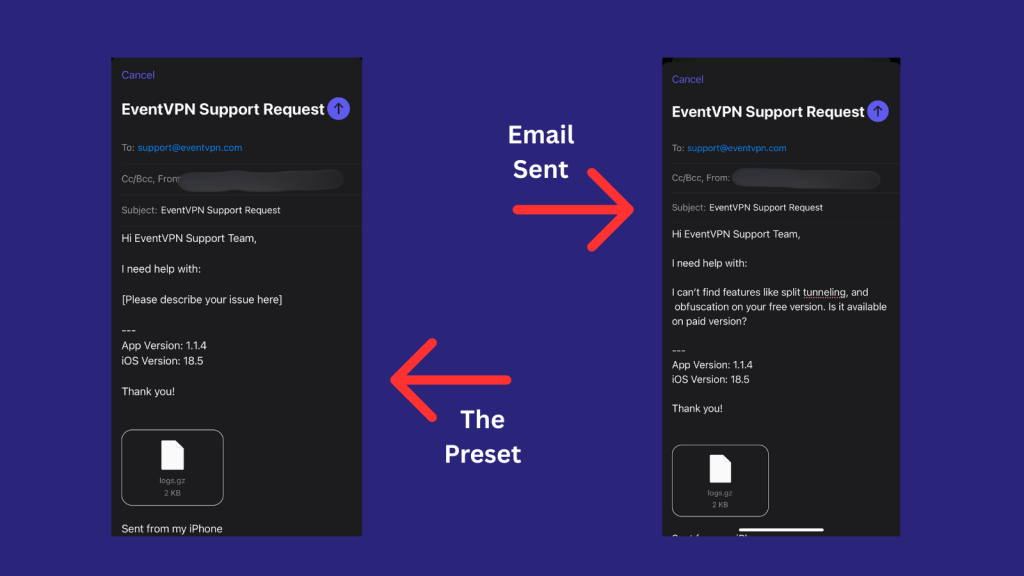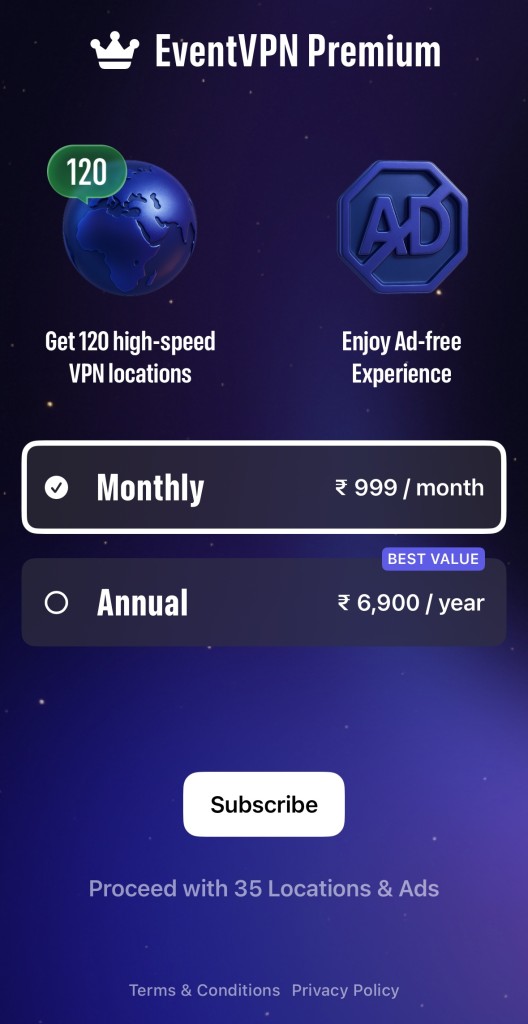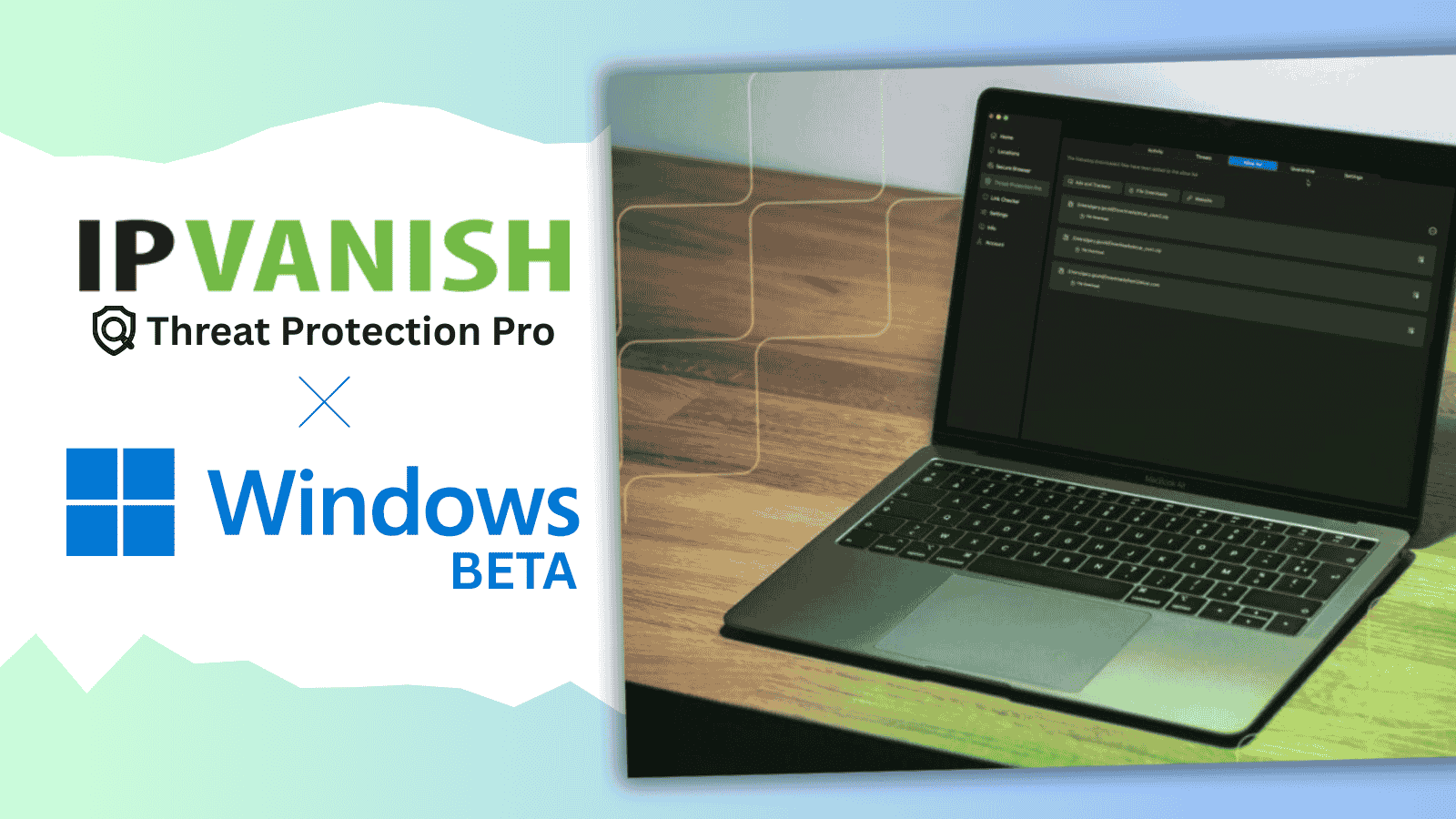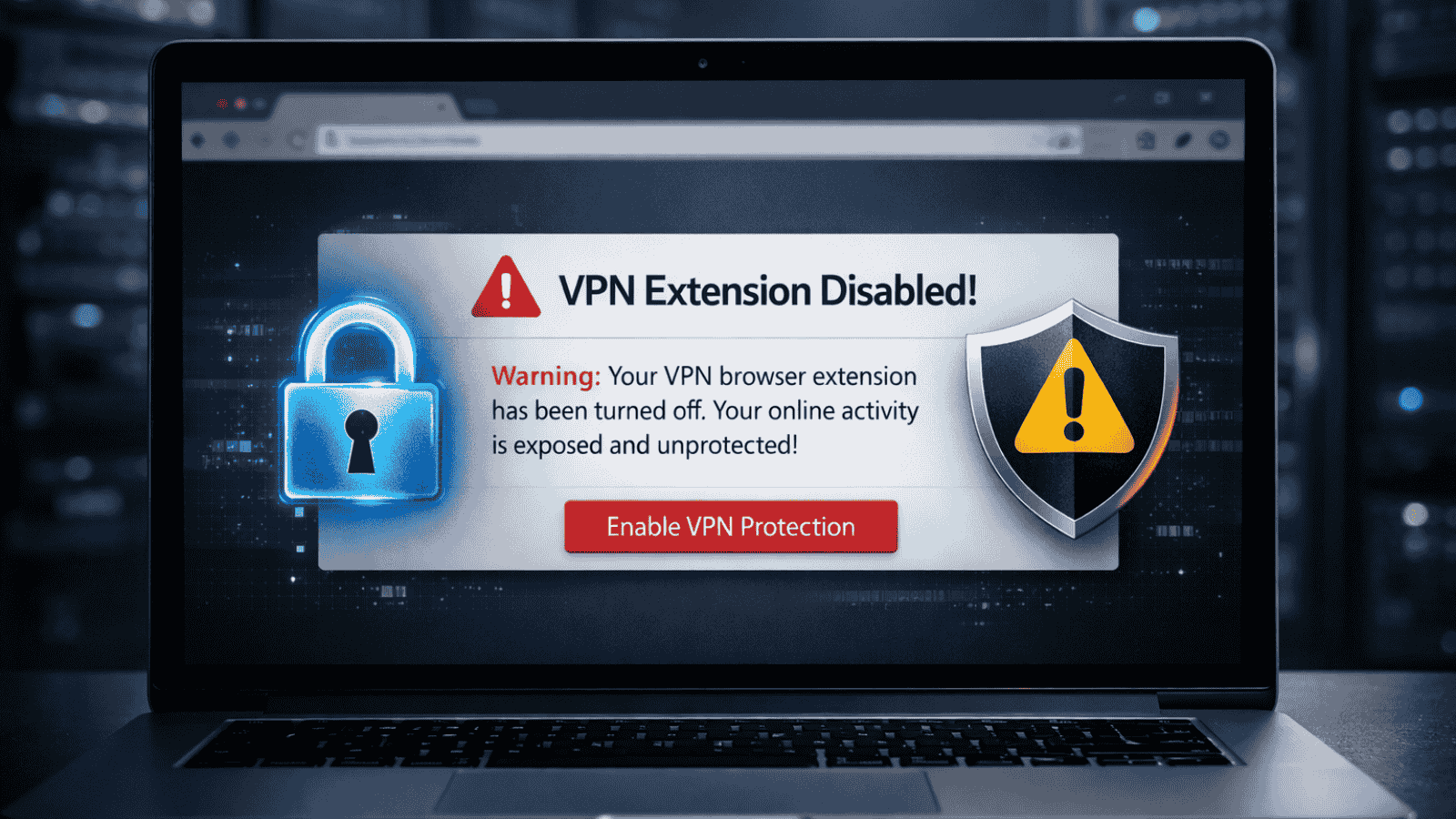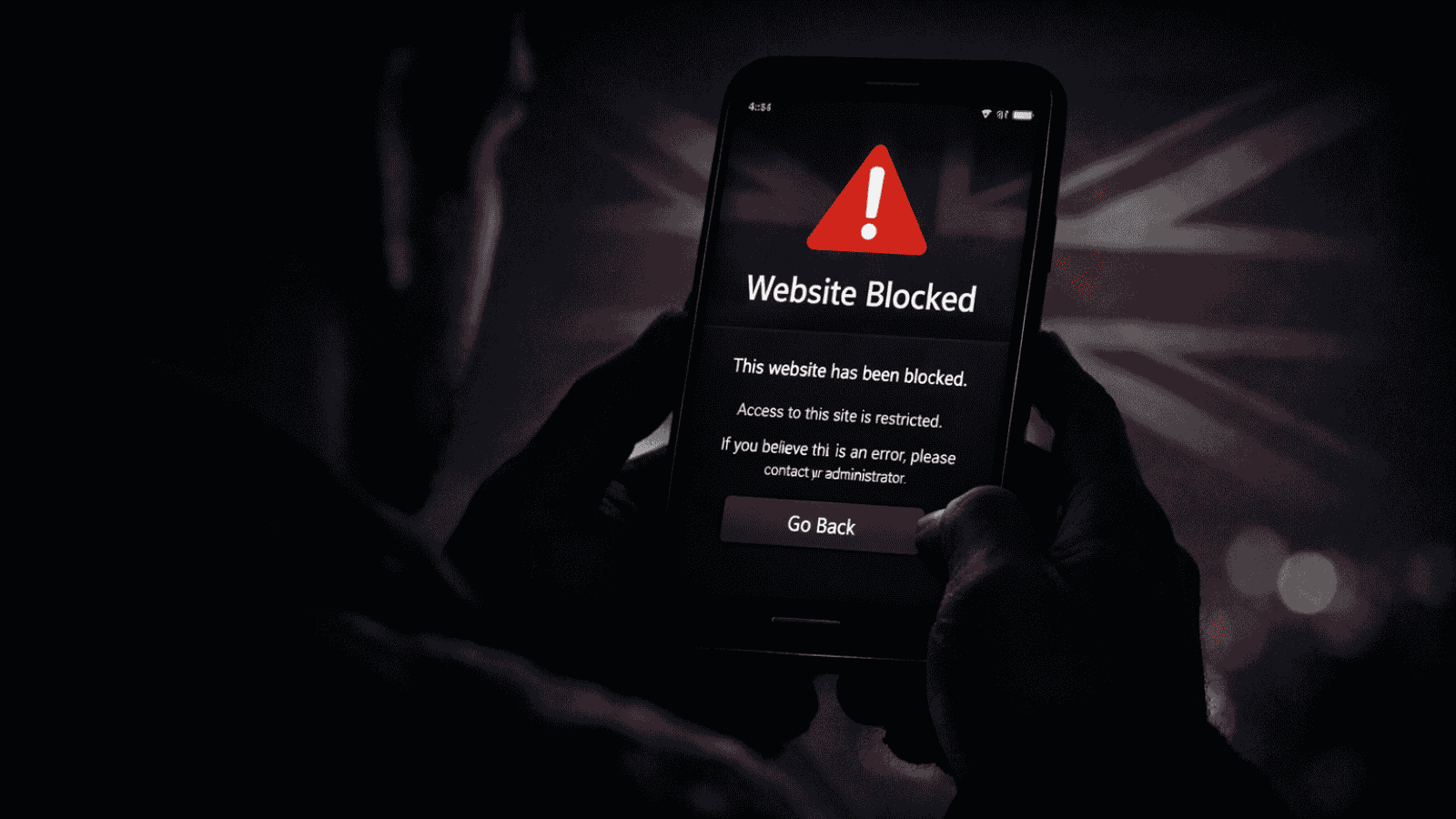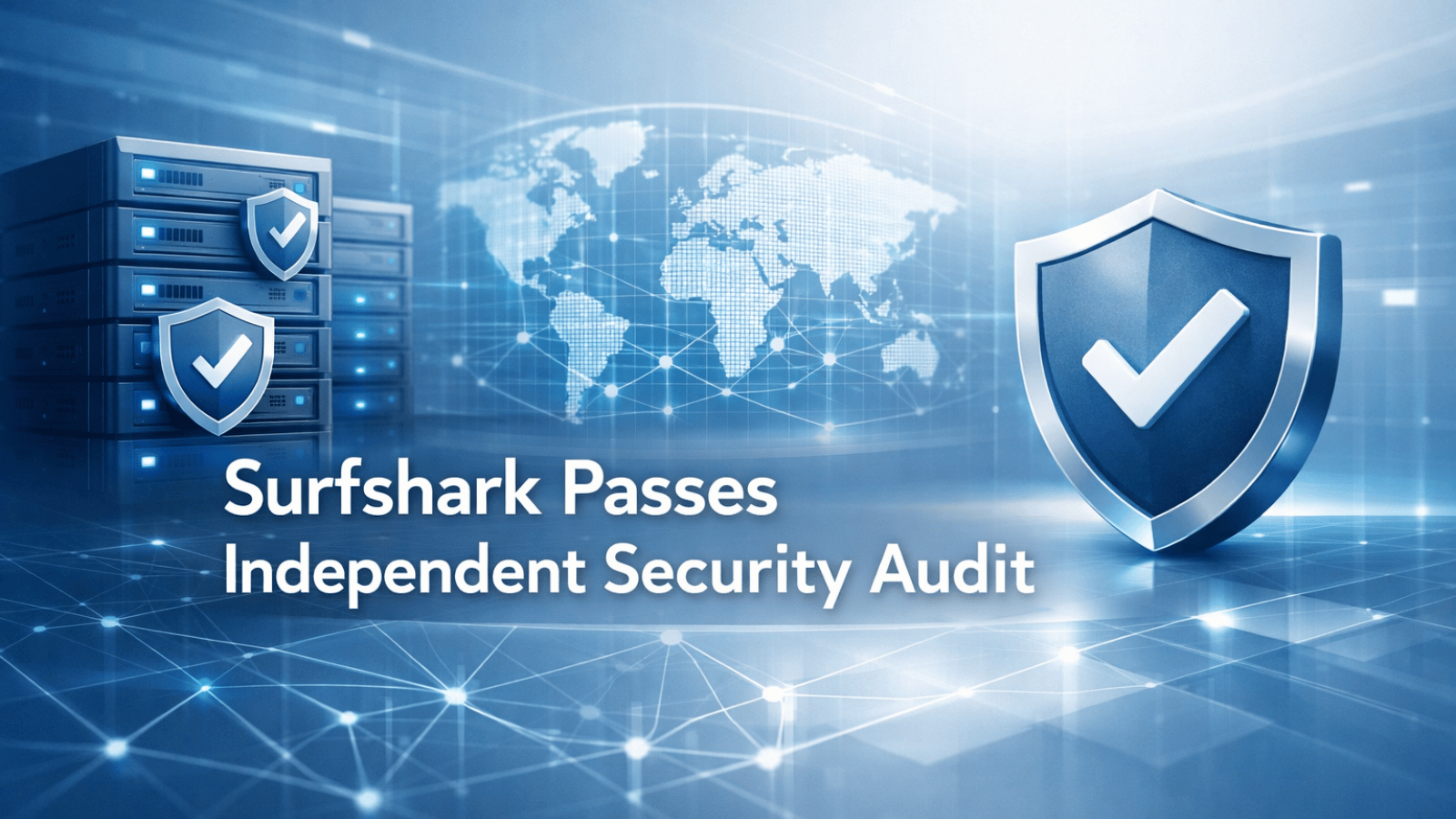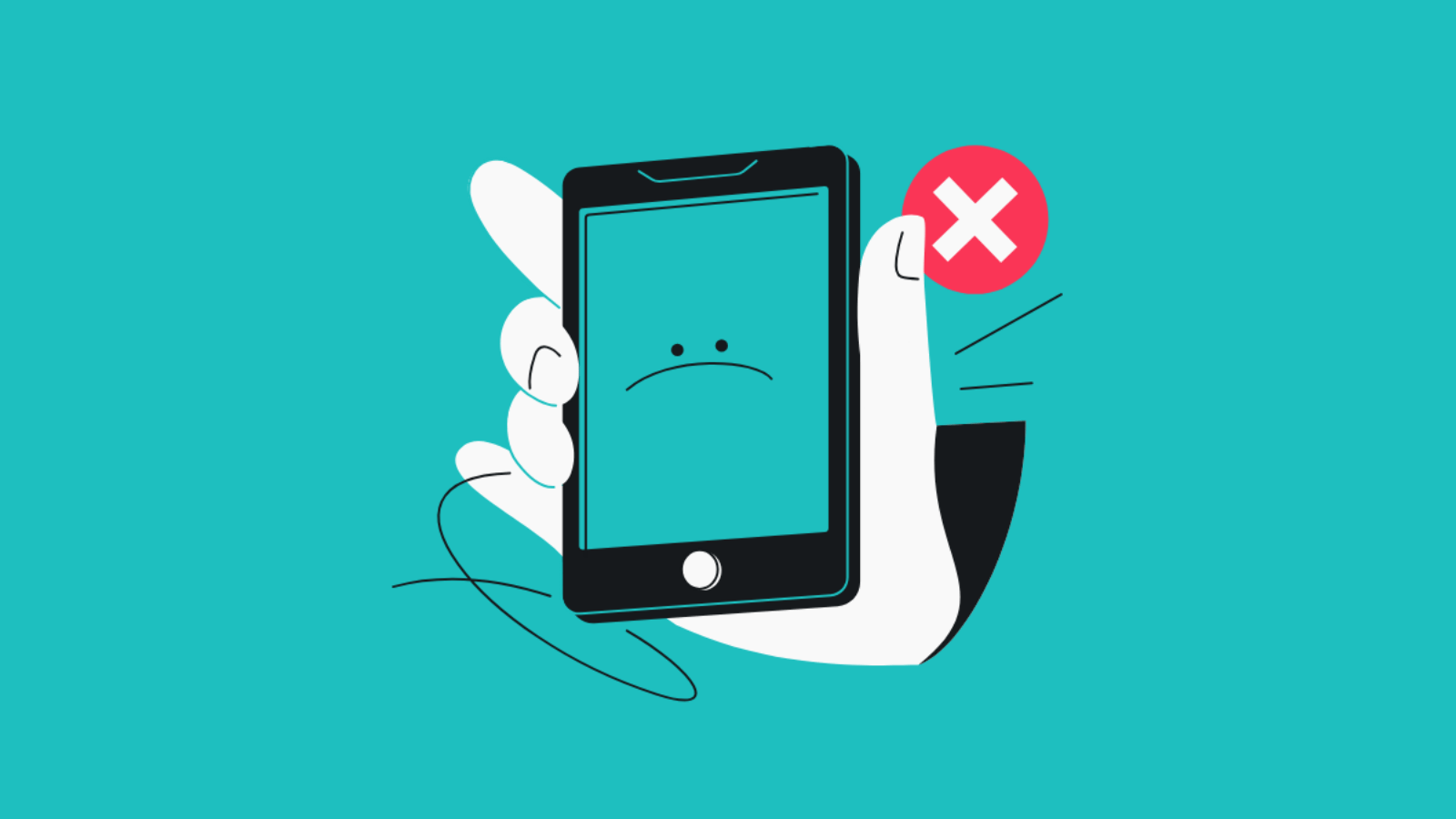EventVPN Review 2026 – Is it Really Good or Is it Too Good to be True?
Our experts have reviewed 53 VPN providers, which were put through extensive rounds of testing. To learn more about that process, here’s how we review VPNs, where we explain our criteria and our policy of being fully transparent.
Free VPNs usually come with strings attached. Some limit speed and features, while others profit by tracking and selling your data. For anyone serious about online privacy, those compromises can be risky.
Enter EventVPN, a brand-new VPN service created by the same team behind ExpressVPN. Unlike typical free offerings, ExpressVPN promises that EventVPN is built to put privacy first. It combines unlimited bandwidth, ad-supported free access, and premium upgrades with the same high standards that have made ExpressVPN one of the most trusted names in the industry.
But does EventVPN really deliver on its promise of secure, reliable, and truly private browsing without hidden trade-offs? In this EventVPN review, we’ll explore its features, performance, privacy safeguards, and overall value to see if it can change how we think about free VPNs.
1. Background, Jurisdiction & Reputation
Despite being a free VPN, our team believes EventVPN still deserves your trust, as it is a product of ExpressVPN, and it offers strong encryption and protocols in addition to a dedicated kill switch. Our Score: 9/10
EventVPN comes from the same team behind ExpressVPN. By introducing EventVPN, the company is aiming to create a lightweight, ad-supported VPN that makes private browsing more accessible, especially for iOS and macOS users.
The service is based in the British Virgin Islands (BVI), a jurisdiction long considered favorable for privacy. The BVI has no mandatory data retention laws and operates outside the reach of major intelligence-sharing alliances such as the 5/9/14 Eyes Alliance. This legal environment has been one of ExpressVPN’s key advantages, and EventVPN benefits from the same framework. If you wish to read more about expressVPN's background, just click here.
That said, EventVPN is a brand-new product. While it inherits infrastructure and policies from ExpressVPN, including the use of RAM-only servers and a strict no-logs stance, it has not yet undergone independent audits or long-term scrutiny. ExpressVPN has set a high bar by regularly commissioning external audits of its apps, infrastructure, and privacy policies. Until EventVPN takes similar steps, its reputation rests largely on the trust established by its parent service rather than its own track record.
In other words, EventVPN starts with a strong foundation, but does it really stand on the ground it claims?
Is EventVPN Safe and Secure?
If we keep the specifications in mind, then yes, EventVPN is built with privacy and security at its core. Here are the key aspects:
- Encryption: ChaCha20-Poly1305 authenticated encryption for strong protection.
- Protocol: Post-Quantum WireGuard® with hybrid cryptographic handshake.
- Servers: RAM-only servers that wipe data on every reboot.
- Kill Switch: Prevents accidental data leaks during connection drops.
- Privacy Policy: No-logs policy, modeled after ExpressVPN’s standards.
- Audits: No independent audits yet, unlike ExpressVPN.
As per our current review, EventVPN offers solid safeguards for a free VPN, but its lack of third-party audits leaves room for improvement in transparency. Moreover, since it
2. Supported Platforms & Devices
Our team believes EventVPN is still not available on the maximum range of devices. It is now only available on iOS and macOS. Our Score: 5/10
EventVPN is designed exclusively for Apple’s ecosystem, keeping its scope narrower than ExpressVPN’s cross-platform support. At this stage, the app works on:
- iOS (16 and newer) – including the latest iOS 26 with Liquid Glass support
- macOS – offering the same simple and streamlined experience
According to the official EventVPN App Store listing and the launch announcement from ExpressVPN’s team, the service has no Android, Windows, Linux, or router support at this time. This makes EventVPN best suited for Apple-exclusive users.
On the free plan, you can connect one device at a time. With EventVPN Premium, up to eight devices can be used simultaneously, which provides added flexibility for families or users with multiple Apple devices.
In summary of this section of review, EventVPN focuses on simplicity for Apple platforms but leaves out wider compatibility, a key limitation for users outside the iOS/macOS ecosystem.
3. Installation & Initial Configuration
EventVPN is simple to install and set up, even for complete beginners. The process is smooth and hassle-free. Our Score: 10/10
1. Begin by visiting the Apple App Store and searching for EventVPN: Unlimited Secure VPN. The listing highlights its global connectivity and privacy-first approach. Tap “Get” to initiate the download.
2. Once installed, launching EventVPN reveals its sleek, cosmic-themed splash screen. This visual branding reinforces the app’s promise of secure, borderless browsing.
3. To stay informed about connection status and app updates, EventVPN prompts users to allow notifications.
4. EventVPN offers a free tier supported by ads. Users are informed about this model and asked to consent to personalized advertising. Tap “Continue” to proceed. Tracking preferences can be modified later in the app settings.
5. For enhanced features, users can upgrade to EventVPN Premium, unlocking more server locations and removing ads. Select either Monthly or Annual plan. Tap “Subscribe” to activate premium access. For using the Free version, click "Proceed with 35 locations & ads" given right below the subscribe button.
6. After setup, users can browse available VPN servers. EventVPN offers both recommended and full location lists, with latency indicators and premium tags. Use filters like “All Regions” or “Recommended” to refine your search. Tap a server to preview latency and connection quality.
7. Before the VPN connects, a short ad is displayed. This supports the free service tier and typically includes a countdown timer and promotional content. Then proceed to connect securely. Wait for the ad to complete (e.g., 27 seconds).
8. Once the ad finishes, users can initiate the VPN connection. The interface displays connection status, duration, IP address, and latency. Tap “Connect” to activate the VPN. Your IP will be masked, and traffic encrypted.
4. Prominent Features
EventVPN focuses on delivering essential VPN tools that work reliably, without overwhelming users with complexity. However, it lacks advanced features like obfuscation or split tunneling, which means power users may find it limited. But we have to sideline it as it is a free VPN. Our Score: 9/10
After spending time reviewing EventVPN, we found that its design is centered on simplicity and privacy, even in the free tier. Unlike many free VPNs that restrict bandwidth or use questionable data practices, EventVPN manages to deliver a surprisingly smooth and secure experience. Here are the features that stood out during our testing:
4.1 Free Access With Ads
A short ad before and after each session unlocks unlimited browsing. During testing, there were so many apps; however, they were only brief, so they didn’t interfere with usability. Nevertheless, having an ad in each step is pretty annoying in itself.
4.2 Unlimited Bandwidth
EventVPN doesn’t impose data caps. We streamed video, joined calls, and browsed freely without running into performance throttling. So this is a good thing overall as it is a free VPN.
4.3 Server Network
The free plan includes servers in 35+ countries, while Premium expands that to 125+ locations worldwide. In our usage, the free server selection was adequate for everyday browsing, though Premium offers much better global flexibility.
4.4 Strong Encryption
EventVPN relies on ChaCha20-Poly1305 encryption combined with Post-Quantum WireGuard®, which balances speed with forward-looking security. In practice, connections were fast and stable, and it’s encouraging to see post-quantum security implemented from the start.
4.5 RAM-Only Servers
All servers are RAM-only, meaning data is wiped on every reboot. This aligns with ExpressVPN’s approach and enhances trust. Since we can’t verify this directly, we rely on the company’s stated commitment, but it’s a valuable safeguard in theory.
4.6 Kill Switch
EventVPN includes a Kill Switch to block traffic if the VPN connection drops. We tested for both standard and advanced kill switches, and trust us, they are both available for the free version. During testing, it worked as expected, instantly cutting off data until the connection was restored.
4.7 Built-In Speed Test
The app includes a quick server speed test. It consistently helped us pick the fastest option available during our sessions.
4.8 Simultaneous Connections
The free plan covers one device at a time. Premium extends this to eight devices, useful for Apple households.
4.9 Premium Flexibility
Users can upgrade to Premium for ad-free usage, priority support, and wider server access whenever they need more flexibility.
Our Take
From our hands-on use, unlimited bandwidth and stable connections stood out most, a rarity among free VPNs that often impose strict limits. The balance between simplicity and strong privacy protections makes EventVPN a unique option in the free VPN space.
However, it does miss some advanced features such as obfuscation, split tunneling, and broader protocol support. While the service uses modern encryption, it lacks specialized tools designed for bypassing censorship. For that reason, if you live in a country where VPN use is strictly prohibited, we do not recommend relying on EventVPN as your primary solution.
5. Server Count & Infrastructure
EventVPN’s server network proved fast, stable, and reliable in our tests, with no bandwidth limits. However, we did encounter some hiccups while connecting to certain servers. Our Score: 9/10
EventVPN offers 35+ countries on the free plan and expands to 125+ server locations with Premium. For a free service, this is a generous spread. To make things easier, the app lets you filter servers by access type. Whether you're browsing free or premium options, latency indicators help you pick the fastest route.
But this is not it. Guess what is the best part? The best thing is that most of its free servers are in the US.
Now, obviously, when you connect to a server or change a server, there comes an ad before you finally get connected. But it is worth it. Even though Proton VPN is free (along with many other free VPNs), it offers only 4-5 free servers. And the same thing happens there- an ad before changing a server.
In our tests, connections to servers were quick and stable. Streaming and calls worked without noticeable slowdowns, which isn’t common with most free VPNs.
We encountered repeated connection errors while attempting to connect to the Italy – Cosenza server. After four consecutive attempts, the connection failed to establish, with long load times and a persistent error message: “You could not connect. Please check your internet connection and try again.”
The Singapore – Jurong and US – New York servers also failed on the first attempt but connected successfully on the second try. These intermittent issues suggest that server load balancing may still be a work in progress.
This kind of hiccup isn’t uncommon with free VPNs, especially during peak hours or on high-demand servers. While most EventVPN locations eventually connected, it’s worth noting that server reliability may vary depending on time, region, and demand.
Nevertheless, all its servers run on 10Gbps infrastructure and are RAM-only, wiping data on every reboot. Combined with its no-logs policy, this setup provides a strong baseline for privacy and performance.
That said, EventVPN is still new, so its long-term reliability under heavy demand remains to be seen.
6. Media Streaming, Torrenting, and Gaming Support
After putting EventVPN through rigorous real-world testing, we set out to answer a key question: Can a free VPN truly handle media-heavy tasks like streaming, gaming, and torrenting without compromising speed or stability?
TechNadu's team of VPN experts didn’t just speculate, we tested it ourselves. From HD video playback to live multiplayer combat, we explored how EventVPN performs under pressure. While iOS limitations restrict torrenting, the VPN’s performance in streaming and gaming scenarios exceeded expectations. Here's what we found:
6.1 Is EventVPN Good for Streaming?
Our Score: 10/10
We tested EventVPN extensively for streaming performance across multiple servers and platforms and the results were better than expected for a free VPN. While it doesn’t unlock premium streaming services like Netflix or Disney+, it handles HD playback on region-free platforms with ease.
We connected to the New York server and streamed a full-length martial arts drama scene on a smartphone. At the start, the video appeared slightly blurry, but the quality quickly stabilized within a few seconds. After that, the stream played smoothly with no buffering, resolution drops, or connection interruptions. The VPN interface remained stable throughout, and the IP masking worked as intended.
Streaming Experience Breakdown
- HD Streaming: 1080p playback was smooth on New York and Singapore servers.
- Geo-Unblocking: EventVPN couldn’t bypass Netflix or Disney+ restrictions.
- Ad Interruptions: A short ad plays before each connection on the free tier, adding a delay before streaming begins.
- Connection Stability: Once connected, the VPN remained stable for the duration of our streaming tests.
6.2 Is EventVPN Good for Gaming?
Our Score: 10/10
We tested EventVPN’s gaming performance by connecting to the USA – New York server and diving into a live match of Call of Duty: Mobile. The results? Surprisingly smooth.
Despite being a free VPN, EventVPN held up impressively under real-time gaming conditions. We experienced no lag, no packet loss, and no interruptions during our session. The connection remained stable throughout, with responsive controls and consistent frame rates.
Gaming Test Summary
- Game Tested: Call of Duty: Mobile
- Server Used: USA – New York
- Connection Duration: 5+ minutes
- Performance: No lag, no disconnects, smooth gameplay
- Ping: Averaged around 83 ms (as noted in our speed test section)
We played a full round in a suburban combat map, engaging multiple enemies near the “Yellow House” and “Westfield Movers” truck. The VPN connection didn’t interfere with aiming, movement, or hit registration. Even during intense firefights, the latency remained stable and gameplay fluid.
6.3 Is EventVPN Good for Torrenting
Our Score: N/A (Platform-Limited)
While EventVPN offers strong privacy features including RAM-only servers and a kill switch, it’s not currently viable for torrenting on iOS. That’s not a fault of the VPN itself, but rather a limitation of the platform.
Torrenting on iOS: What You Need to Know
Apple’s App Store policies restrict torrent clients, meaning popular apps like uTorrent, BitTorrent, and qBittorrent are unavailable for download. Even third-party alternatives are either blocked or lack full functionality. As a result:
- No native torrent clients available on iOS
- No support for magnet links or peer-to-peer file sharing
EventVPN may be technically capable of supporting torrenting on platforms like Android (once available), but on iOS, torrenting simply isn’t possible due to system-level restrictions. If torrenting is a priority, you’ll need to use a desktop platform or wait for broader device support from EventVPN.
7. Security & Privacy
As per our review, EventVPN uses strong encryption, RAM-only servers, and a no-logs policy, but lacks independent audits and advanced features. Our Score: 8/10
EventVPN puts privacy at the center of its design, and in our testing, it proved more robust than most free VPNs. While it doesn’t yet match the transparency of services like ExpressVPN, its technical foundation is impressive for a free-tier offering.
EventVPN secures traffic using ChaCha20-Poly1305 encryption, paired with Post-Quantum WireGuard®. This combination delivers speed while preparing for future threats from quantum computing. In our usage, connections were consistently fast and stable, even across long-distance servers.
7.1 Server Infrastructure
All servers are RAM-only, meaning data is automatically wiped on reboot. This reduces the risk of stored or recoverable information. The built-in Kill Switch worked reliably in our tests, instantly blocking traffic whenever the VPN connection dropped.
7.2 Privacy Policy & Data Handling
EventVPN follows a strict no-logs policy, claiming not to track browsing activity, connection timestamps, or IP addresses. While this mirrors the standards of top-tier VPNs like ExpressVPN, EventVPN has not yet undergone independent audits to verify these claims. That said, its documentation offers a transparent look into how user data is handled across different layers of the service.
This section outlines EventVPN’s foundational privacy promise: it does not collect, monitor, or store any VPN tunnel activity. That includes browsing history, DNS queries, connection timestamps, source/destination IPs, and bandwidth consumption. The VPN operates on a decentralized, serverless architecture using the WireGuard protocol, which is known for its minimal attack surface and speed. This setup ensures that even if servers were compromised, there would be no user-identifiable data to extract.
It further clarifies that no VPN activity or metadata is logged, including session logs or network traffic details. However, it does acknowledge that some optional data, like analytics or marketing metadata, may be collected, but only with explicit user consent.
Moving ahead, EventVPN states that it uses Braze to store and process optional user-provided data like push notification tokens and subscription status. It also supports Apple’s AppTracking Transparency (ATT) framework, which governs access to the Identifier for Advertisers (IDFA). These tools may be used for campaign performance tracking and ad delivery optimization, but only if the user consents. Importantly, this data is not tied to VPN activity and is used solely for improving app experience and marketing relevance.
One of the sections of its privacy policy covers account-level security. EventVPN uses Apple’s receipt validation system to confirm subscription status and grant access to premium VPN regions. Free users remain limited to ad-supported servers. The policy also emphasizes user responsibility for account security, urging immediate reporting of unauthorized access or compromised credentials. While this isn’t unique to EventVPN, it reinforces the platform’s commitment to safeguarding user identity and subscription integrity.
Our Take
From what we’ve tested so far in our review, EventVPN offers a strong security foundation for a free VPN. Its encryption, RAM-only server design, and leak protection are solid. The privacy policy is clear and user-focused, with consent-based tracking and no collection of VPN activity. However, the lack of independent audits and the absence of advanced features like obfuscation mean it may not be ideal for users in countries with strict censorship or VPN bans. Still, for everyday use, especially in regions with moderate restrictions, EventVPN delivers more than most free VPNs dare to promise.
7.3 Will EventVPN Leak/Expose Your Private Data?
One of the most critical benchmarks for any VPN is whether it leaks DNS requests because even if your IP is masked, a DNS leak can expose the websites you visit to your ISP or third parties. So we ran multiple DNS leak tests while connected to EventVPN’s free servers.
The results? No leaks detected.
Before the test, we connected to a server in India and verified the assigned public IP address. The DNS leak test was then initiated using dnsleaktest.com, a trusted tool for identifying DNS exposure.
Then we connected to Atlanta, USA, server in EventVPN. We again ran the test and the test returned a clean result: all DNS queries were routed through Cloudflare servers in the United States, matching the VPN-assigned IP. No ISP-level DNS servers were exposed, and no personal IP leakage occurred.
Our Take
That said, while the leak tests passed, EventVPN has not yet undergone independent audits, which are essential for verifying backend practices. For casual users, though, the platform delivers leak-free protection where it matters most.
8. Speed & Performance – Is EventVPN Fast Enough for Real-World Use?
Our Score: 8.5/10
EventVPN surprised us with its speed consistency across global servers, even in its free tier. While most free VPNs throttle bandwidth or prioritize premium users, EventVPN maintained near-baseline performance in multiple regions, making it a strong contender for casual streaming, browsing, and light gaming.
8.1 Speed Test Methodology
To evaluate EventVPN’s real-world performance, our team conducted speed tests across six major locations using a baseline connection of 212 Mbps download/upload. Each server was tested for:
- Download speed – for streaming, browsing, and downloads
- Upload speed – for video calls, file sharing, and cloud sync
- Ping – for latency-sensitive tasks like multiplayer gaming
These tests were conducted using the free version of EventVPN on iOS, with all ads completed before connection.
8.2 Speed Test Results
8.3 Performance Insights
- Best Overall: UK and USA servers showed the lowest latency and highest throughput.
- Most Surprising: Italy and Singapore maintained strong upload speeds despite higher ping.
- Streaming Potential: All EventVPN servers we tested during our review were capable of handling HD streaming with minimal buffering.
- Gaming Viability: UK and Italy servers are best suited for latency-sensitive tasks like multiplayer gaming.
EventVPN’s infrastructure (likely inherited from ExpressVPN) appears robust, even in the ad-supported free tier. The absence of bandwidth throttling and the consistent performance across continents make it one of the most capable free VPNs we’ve tested.
9. Connection Stability
In our hands-on tests, EventVPN maintained stable connections without sudden drops, even during extended sessions. Our Score: 9/10
A stable VPN connection is essential for streaming, gaming, and large downloads. We tested EventVPN over extended sessions to see how well it maintains consistency.
During our usage, connections remained stable across multiple servers in Europe, North America, and Asia. We didn’t encounter sudden disconnections or performance drops, even when streaming HD content or joining video calls. This is impressive for a free VPN, where interruptions are common.
We also tested under heavier loads by running downloads while browsing and streaming simultaneously. EventVPN held up without crashing or forcing a reconnect. Minor slowdowns did appear on distant servers, but the connection itself stayed intact.
Our Take
From our hands-on testing while reviewing EventVPN, we found that It delivers reliable and consistent connections, making it suitable for everyday browsing and light streaming. However, users with advanced needs like gaming on distant servers may notice occasional latency, which is expected for a new VPN service.
10. Data Limits & Bandwidth Throttling
EventVPN offers truly unlimited bandwidth with no throttling, which is rare for a free VPN. Our Score: 10/10
One of the biggest drawbacks with most free VPNs is the presence of strict data caps or hidden throttling. To see how EventVPN compares, we checked its terms and tested the service under continuous use.
EventVPN makes a clear promise: no data limits. Unlike competitors that restrict usage to a few hundred megabytes per day, EventVPN allows unlimited browsing and streaming on the free plan.
We tested this claim by running EventVPN continuously for several hours, streaming HD video, downloading files, and browsing across multiple servers. At no point did we experience forced slowdowns or cut-offs, even under heavy usage. Speeds varied depending on server distance, but this was expected and not the result of deliberate throttling.
Our Take
EventVPN stands out for offering unlimited bandwidth without hidden throttling on both its free and premium tiers. This makes it much more usable than most free VPNs, which quickly become impractical once their data caps are reached.
11. Ads and Pop-Ups
Free plan shows brief ads before and after sessions, but they are unobtrusive and don’t interrupt browsing. Our Score: 9/10
Free VPNs usually come with ads, and how they are implemented can make or break the experience. We tested EventVPN regularly to see if its ad model felt intrusive.
With the free plan, you’ll see one short ad before connecting and another after your session ends. During our testing, these ads were brief and didn’t interrupt browsing, streaming, or app use once the VPN was active. Importantly, there were no pop-ups or banners appearing mid-session. However, whenever you click on something, you will most probably encounter an ad for sure.
EventVPN relies on Apple’s App Tracking Transparency (ATT) framework, which means you can choose whether or not to allow personalized ads. This keeps the ad model privacy-conscious compared to typical free VPNs that rely on aggressive tracking.
Our Take
As per our EventVPN review, its ads are present all over and at every step, but are minimally disruptive when it comes to streaming, making the free tier more usable than many competitors. If you’d rather avoid ads entirely, upgrading to Premium removes them altogether.
12. Customer Support: Easy to Reach, But Response Time Still Unverified
EventVPN offers a straightforward way to contact support, but as of now, we’re still waiting to see how responsive and helpful the team truly is. Our Score: 7/10
12.1 How to Contact EventVPN Support
To reach out for help, follow these steps:
1. Open the EventVPN app and tap on Profile.
2. Scroll to the bottom and select Contact Support. You’ll see a note: “We aim to reply within 48 hours.”
3. A preset email template opens in your default mail app. Simply describe your issue, and the app auto-fills your version details and attaches diagnostic logs.
4. Tap Send to submit your request.
We tested this process by submitting a support query regarding missing features like split tunneling and obfuscation. The email was sent successfully, and we’re now tracking how quickly the suppiort team replies.
Our Take So Far
EventVPN makes it easy to initiate support requests, especially for non-technical users. The inclusion of diagnostic logs and version info is a smart touch. However, the lack of live chat or in-app ticket tracking means users must rely on email and wait for a reply. We’ll update this section once we receive a response to our query.
13. Pricing
EventVPN offers both a free tier and a paid Premium version. While the free plan includes access to 35 server locations and is supported by ads, the Premium upgrade unlocks additional features designed for users who want faster speeds, more flexibility, and an ad-free experience. However, we still have not reviewed EventVPN's Premium Version.
Premium Subscription Options
Final Thoughts - Is EventVPN Good as per TechNadu's Review?
After testing EventVPN extensively for the first two days, we can say it delivers more than what most free VPNs offer. The combination of unlimited bandwidth, stable connections, and privacy-friendly design makes it a standout option for Apple users who want simple, no-cost protection.
Its reliance on RAM-only servers, strong encryption, and a no-logs policy gives it a solid privacy foundation. In practice, connections were stable across regions, streaming worked without interruptions, and ads were present but not disruptive.
That said, in our event VPN review, we found that EventVPN has clear limitations. It’s restricted to iOS and macOS, lacks advanced features like obfuscation or split tunneling, and has not undergone independent audits yet. Moreover, when we tried to connect to the New York server, we faced a lot of disruptions. That is why, for users in countries with strict censorship or VPN bans, this isn’t the right solution. However, if you are in it for casual streaming, gaming or even torrenting, then it is far better than its counterparts.

